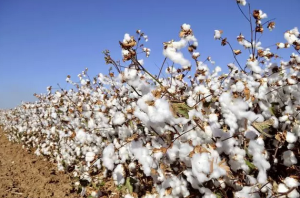In order to cope with the sudden outbreak of coronavirus 2019, in addition to our side, all countries have also taken emergency measures. However, some countries are making a mountain out of a molehill, which has been criticized by the world health organization. Although a friend indeed can be seen in adversity, it is also a mirror through which one can see clearly the true face of many countries. At a critical moment, India disobeyed the advice of the world health organization to repatriate its citizens in China, and then suddenly banned the export of masks. Then on February 1st, the Indian government announced yet again that it would raise import tariffs on electronics, toys and furniture, in an effort to boost domestic manufacturing.

Kotak, India’s largest cotton exporter, said it would stop exporting cotton to China after Chinese ports and Banks delayed operations due to the outbreak, chinanews reported. It is understood that the cotton giant will seek other overseas buyers in the international market, such as Bangladesh, Indonesia and Vietnam, to fill the position vacated by Chinese buyers.
China, one of the world’s largest importers of cotton, is also the biggest buyer of Indian cotton, importing more than 200,000 tonnes a year. Figures show that India has shipped a total of 600,000 to 700,000 bales of cotton (about 170kg/bales) to China so far this year, of which 75% is in transit. Indian exporters had expected to ship another 300, 000 bales by the end of February, but that target is unlikely to be met.
Whether temporarily halting cotton exports to China or, in critical cases, banning the export of face masks, India’s current economic and trade measures are not surprising. At the end of 2019, when the world’s 15 economies thought that seven years of talks could be brought to a successful conclusion, India decided at the last minute to “skip” the regional comprehensive economic partnership (RCEP).
According to people familiar with the matter, India decided not to participate because of concerns that after joining RCEP, goods from countries such as China and Australia would flood the country’s market, hurting Indian industry. But experts in international trade and economics point out that India’s falling behind is not only a loss for itself, but also an “incomplete” outcome for the RCEP, which will lose a fifth of its economy and reduce the economic benefits to member states.
It is worth mentioning that in recent years, on the grounds of “protecting local industries”, India has also set up many obstacles to products originated from China. In the middle of last month, it was revealed that India was planning to charge extra for imported solar cells and modules, of which China is the biggest supplier. According to incomplete statistics, by the end of last year, India had imposed additional charges on 93 Chinese goods.